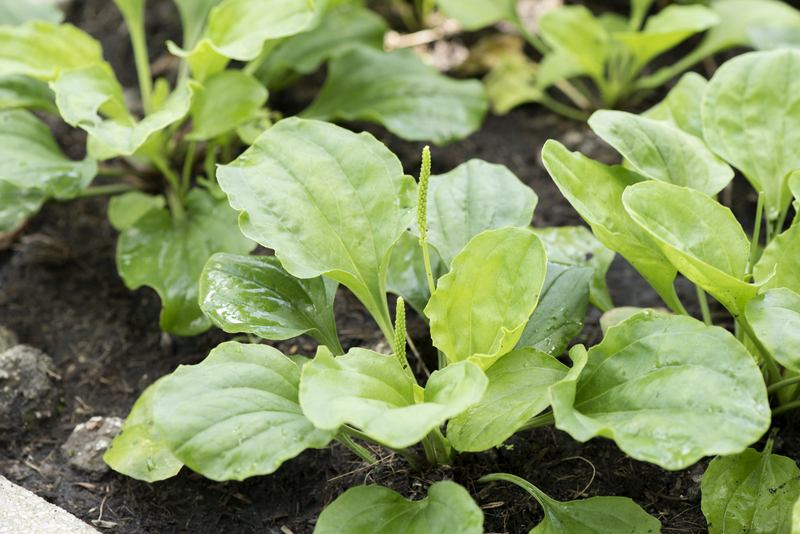Conquer Weeds Naturally: 3 Proven Tips for a Lush Garden
Posted on 22/06/2025
Conquer Weeds Naturally: 3 Proven Tips for a Lush Garden
Are weeds ruining your dream of having a beautiful and healthy garden? Every gardener knows the battle--those pesky, persistent weeds seem to pop up overnight, stealing water, nutrients, and sunlight away from your prized plants. While chemical solutions may offer a temporary fix, more and more gardeners are seeking natural weed control methods to maintain an eco-friendly oasis. In this guide, we'll explore three proven tips to conquer weeds naturally and keep your garden looking lush and vibrant all season long.
Why Choose Natural Weed Control?
Before delving into our tried-and-true tips, it's important to understand the benefits of using natural weed suppression techniques. Chemical herbicides may provide quick results, but they often harm beneficial insects, pollute the soil and groundwater, and disrupt the balance of your garden's ecosystem. By choosing organic and non-toxic solutions, you are:
- Protecting pollinators such as bees and butterflies essential for plant reproduction
- Maintaining soil health by preserving earthworms and microorganisms
- Ensuring food safety in vegetable gardens by avoiding chemical residues
- Reducing environmental impact by keeping harmful substances out of waterways
Investing time in natural weed prevention not only benefits your garden, but also safeguards the broader environment and supports biodiversity.

1. Embrace Mulching: The Ultimate Natural Weed Barrier
Mulching remains one of the most effective and eco-friendly ways to conquer weeds naturally and foster a healthy garden. By applying a thick layer of organic matter on your soil's surface, you create a hostile environment for weed seeds while enriching your soil in the process.
How Mulching Works for Weed Suppression
- Blocks Light: Weeds require sunlight to germinate and thrive. Mulch acts as a physical barrier, preventing sunlight from reaching weed seeds.
- Retains Moisture: While mulch suppresses weeds, it helps your garden soil hold onto beneficial moisture, supporting your plants through dry spells.
- Improves Soil Structure: As organic mulch breaks down, it enriches soil with nutrients and encourages beneficial microbes.
Best Natural Mulch Materials
- Shredded bark
- Straw or hay (ensure it is seed-free!)
- Grass clippings
- Compost
- Leaf mold
- Pine needles (ideal for acid-loving plants)
- Wood chips
Aim for a layer 2-4 inches thick. Too thin and weeds may poke through; too thick and water may have difficulty penetrating the soil. Replenish your mulch as it decomposes or blows away.
Tip: Avoid placing mulch directly against plant stems to prevent rot or pest issues.
2. Plant Densely and Use Ground Covers
The best way to conquer weeds naturally is to leave them without a fighting chance. Dense planting and the liberal use of ground cover plants can outcompete weeds by monopolizing available resources. When your desired plants cover the ground, there is less space and sunlight for weed seeds to germinate and grow.
Benefits of Densely Planted Gardens for Weed Control
- Suppresses Weed Growth: Vigorous, well-spaced plants and ground covers shade out weeds, making it tough for the latter to grow.
- Reduces Maintenance: Fewer weeds mean less time spent weeding and more time enjoying your lush garden.
- Increases Biodiversity: A mix of ground covers, perennials, and annuals promotes a healthier, balanced ecosystem.
Top Ground Covers to Help You Manage Weeds Naturally
- Creeping thyme: Hardy, fragrant, and blooms with purple flowers
- Sedum (stonecrop): Drought-tolerant succulent ideal for sunny spots
- Clover: Improves soil and attracts pollinators
- Ajuga: Dense, shade-tolerant, and adorned with blue spikes in spring
- Sweet woodruff: Lush foliage, great for shaded areas
- Lamb's ear: Silvery foliage that crowds out weeds and drought tolerant
Intermix these ground covers with your favorite shrubs, perennials, or even vegetables. The result? A self-mulching garden that truly minimizes weed invasion.
Tips for Dense Plantings
- Follow recommended plant spacing but opt for varieties that fill space quickly.
- Plan in layers: Tall plants create shade for deeper soil; mid- and low-growing spreads block light for surface weed seeds.
- Rotate crops yearly in vegetable beds to prevent weeds adapting to consistent conditions.
3. Regular Hand Weeding: The Tried-and-True Method (With a Twist!)
Hand weeding may sound old-fashioned, but when executed correctly, it's one of the most effective, 100% natural ways to keep weeds at bay. The key is to weed smart, not hard, and make this task integral to your gardening routine.
Hand Weeding Best Practices
- Weed after rain, when the soil is moist and roots can be pulled easily.
- Use the right tools: A hori-hori knife, hand cultivator, or dandelion digger can make root removal both faster and more thorough.
- Target weeds before they flower and set seeds to prevent future generations.
- Get the whole root! Many weeds like dandelions can regrow from root fragments.
- Weed regularly: A few minutes each week saves hours of work later.
Bonus Tip: If you practice no-dig gardening, gently tease out the weeds without disturbing the soil too much. This preserves soil structure and minimizes the exposure of new weed seeds.
Enhancing Your Hand Weeding Routine
- Set a schedule: Weed consistently, perhaps every Sunday morning, making it a stress-reducing habit.
- Use a kneeling pad: Save your knees while you're out conquering weeds.
- Dispose responsibly: Compost non-invasive weed matter, but avoid weeds that have gone to seed or have persistent roots.
Other Natural Weed Control Solutions to Try
Beyond our top three proven strategies to conquer weeds naturally, there are additional organic hack and homemade solutions to further bolster your garden's defense:
Smothering with Newspapers/Cardboard
Before adding mulch, lay down sheets of newspaper (6-10 layers thick) or cardboard over bare soil or established weed areas. Moisten, cover with mulch, then let the weeds die from lack of sunlight.
Boiling Water
Pouring boiling water onto weeds in hard-to-reach cracks and driveways effectively kills the foliage and roots, without chemicals.
Homemade Vinegar Spray
Undiluted white vinegar sprayed directly onto young weeds on a sunny day can desiccate and kill them. Be cautious--this method is non-selective and can harm desirable plants.
Prevention: The Key to a Weed-Free and Thriving Garden
As the old saying goes, "An ounce of prevention is worth a pound of cure." To truly conquer weeds naturally, focus on making your garden as unwelcoming as possible for invaders:
- Inspect new plants: Check nursery stock for hitchhiking weeds before planting.
- Choose high-quality compost: Inferior compost can introduce weed seeds.
- Edge beds regularly: Prevent encroachment from the lawn into flower or vegetable beds.
- Keep a garden journal: Track weed outbreaks and solutions that worked.

Frequently Asked Questions about Natural Weed Control
Can I really get rid of weeds without chemicals?
Absolutely! While it takes consistency and a bit of extra effort up front, organic weed control methods are proven to be effective and sustainable. Combining mulching, dense planting, and diligent hand weeding minimizes weed pressure dramatically.
How fast will I see results using natural methods?
Expect immediate improvement, especially after mulching and initial weeding. The long-term effectiveness builds each year as your garden's ecosystem strengthens and weed numbers drop.
Is there a best time to weed?
The best time for hand weeding is after a rain or irrigation, when the soil is soft enough to pull out entire weed roots. Weeding before weeds flower and set seed is crucial for long-term weed suppression.
Can I use mulch in a vegetable garden?
Yes! Use straw, grass clippings, or compost as mulch around vegetables. Avoid dyed or artificial mulches and replenish regularly for full coverage and nutrient benefits.
Conclusion: Experience a Lush Garden Free from Weeds--Naturally
With a smart combination of organic mulching, dense planting, and regular hand weeding, you can conquer weeds naturally and foster a thriving, chemical-free paradise. Embracing these eco-friendly strategies achieves many benefits beyond weed control--improved soil, healthy plants, bustling pollinators, and the peace of mind that comes from gardening in harmony with nature.
Start experimenting with these time-tested natural weed control methods in your own garden. Share your favorite tips, successes, and before-and-after photos--let's build a community of lush, sustainable, and weed-free gardeners!
Together, we can fight the weed war--and win--naturally.
Latest Posts
Transform Your Space with 5 Cost-Effective Low Maintenance Garden Tips
Creating a Dog-Friendly Oasis in Your Garden
Transform Your Outdoor Area with Serene Zen Garden Ideas

